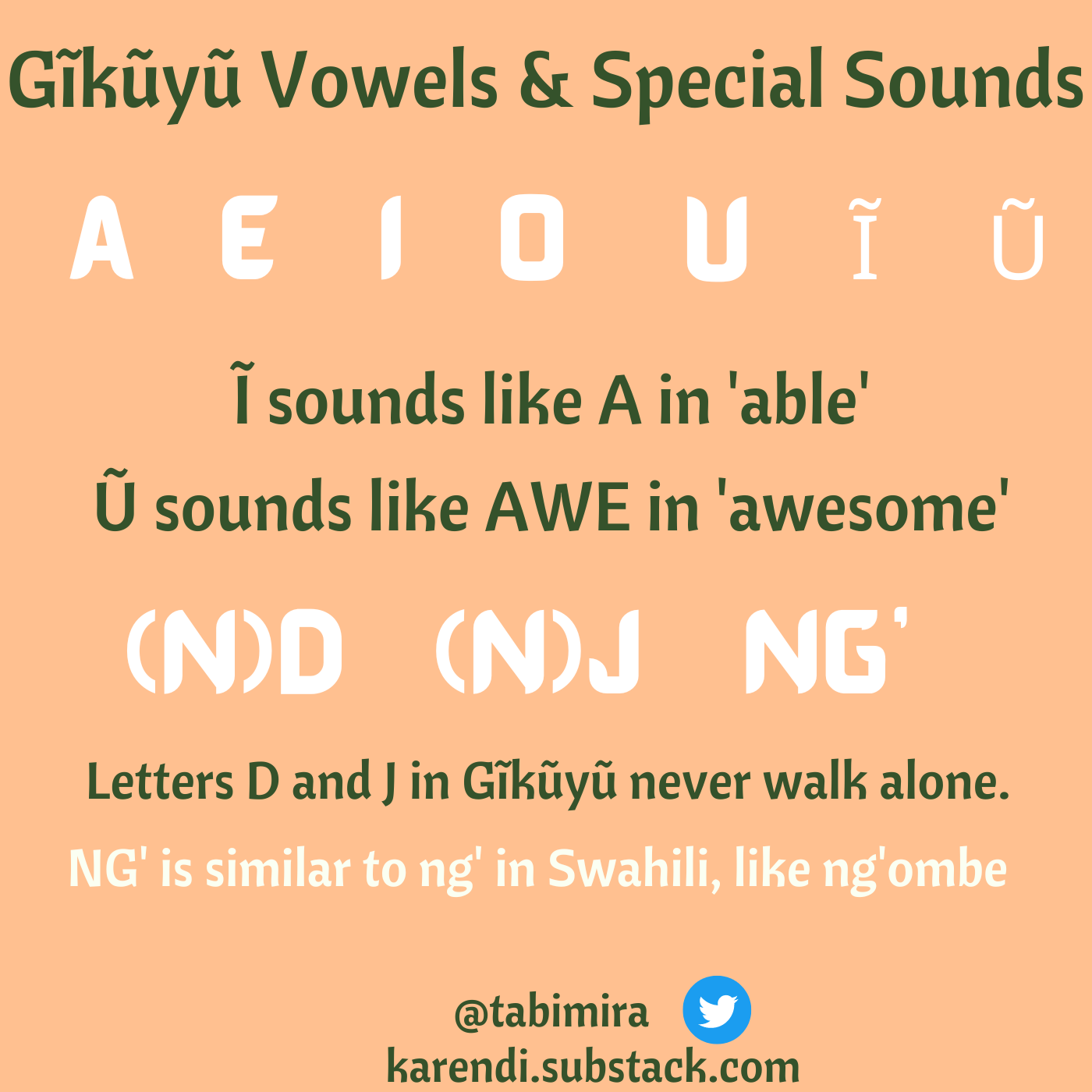Last time we looked at the letters in the Latin Alphabet that Gĩkũyũ did not adopt. Before we jump into the vowels today, there is an important note on two letters that I’d like to make. Letters D and J never go unaccompanied, whether at the start of a word or inside. Gĩkũyũ has other letter combinations:
ny - nyũmba
mb - mbũri
th - thoome
ng - ngaari
ng’ - ng’ombe
What is different is that all the letters above can be used alone but d and j always have to be accompanied by ‘n’. Even though when pronounced sometimes the ‘n’ is almost silent like when we say Njeri, Njũgũna, ndũrũme, ndũne. The ‘n’ may be inconspicuous but it’s part of the written word.
Now onto the vowels. All the vowels in the English language exist also in Gĩkũyũ. To spice things up, we have 2 in addition: Ĩ and Ũ.
Ĩ - pronounciation is close to ‘A’ in ABCD like in the word ‘able’. Very different from the vowel sound ‘i’ and completely changes the meaning of the word. For example:
makĩria - very much/a lot
makĩrĩa - they ate
arĩa - the ones (referring to people, like ‘the ones we saw yesterday’)
aria - talk
Ũ - pronounciation is close to ‘O’ in MNOP. Sounds like ‘awe’ in the word ‘awesome’. Like Ĩ, Ũ is very different from the vowel sound ‘u’ and completely changes the meaning of the word. For example:
cunga - to sieve/filter something
cũnga - to fall asleep
mũrugi - one who cooks
mũrũgi - one who jumps
That’s it for today. See you on the next one!

